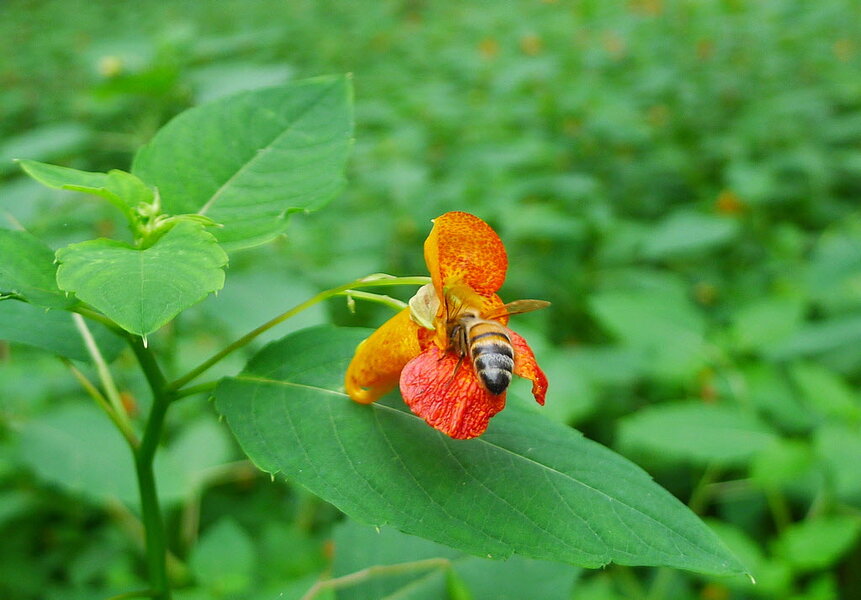Disel pollution disrupts bees' flower hunt
Loading...
| London
Exposure to pollution from diesel exhaust fumes can disrupt honeybees' ability to recognise the smells of flowers and could in future affect pollination and global food security, researchers said on Thursday.
In a study published in the Nature journal Scientific Reports, scientists from Britain's University of Southampton found that the fumes change the profile of the floral odours that attract bees to forage from one flower to the next.
"This could have serious detrimental effects on the number of honeybee colonies and pollination activity," said Tracey Newman, a neuroscientist who worked on the study.
Bees are important pollinators of flowering plants, including many fruit and vegetable crops.
A 2011 U.N. report estimated that bees and other pollinators such as butterflies, beetles or birds do work worth 153 billion euros ($203 bln) a year to the human economy.
Bee populations have been declining steadily in recent decades but there is scientific disagreement over what might be causing it. Much attention has been focused on whether a class of pesticides called neonicotinoids may be the culprit.
A report from the European Food Safety Authority (EFSA) in January said three widely-used neonicotinoids, made mainly by Switzerland's Syngenta and Germany's Bayer, posed an acute risk to honeybees.
EU leaders voted in April to ban three of the world's most widely-used pesticides in this class for two years because of fears they could be linked to a plunge in the beepopulations.
But the British government, which recommended abstaining in a previous EU vote in March, argues the science is inconclusive and advises caution in extrapolating results from laboratory studies to real-life field conditions.
Sensitive smell
Guy Poppy, an ecology professor who worked with Newman, said to be able to forage effectively, honeybees need to be able to learn and recognise plants - a process their results showed could be disrupted by so-called NOx gases, particularly nitrogen dioxide, found in diesel exhaust and other pollution.
For their study, the scientists took eight chemicals found in the odour of oil rapeseed flowers and mixed them in one experiment with clean air and in another with air containing diesel exhaust.
They found that six of the eight chemicals reduced in volume when mixed with diesel fumes, and two disappeared completely within a minute - meaning the profile of the chemical mix had changed. The odour mixed with clean air was unaffected.
When the researchers used the same process with NOx gases - nitric oxide and nitrogen dioxide - found in diesel exhaust emissions, they saw the same results, suggesting NOx is key to how and why the odour's profile was altered.
When the changed chemical mix was then shown to honeybees - which are known to use their sensitive sense of smell to forage for flowers - they could not recognise it.
Giles Budge of Britain's Food and Environment Research Agency said Newton's study highlighted "a fresh issue to add to the many problems facing our insect pollinators".
But he said that since the study was based in the laboratory, more research is needed to see if the problem is occurring in the wider environment.
(Editing by Pravin Char).







